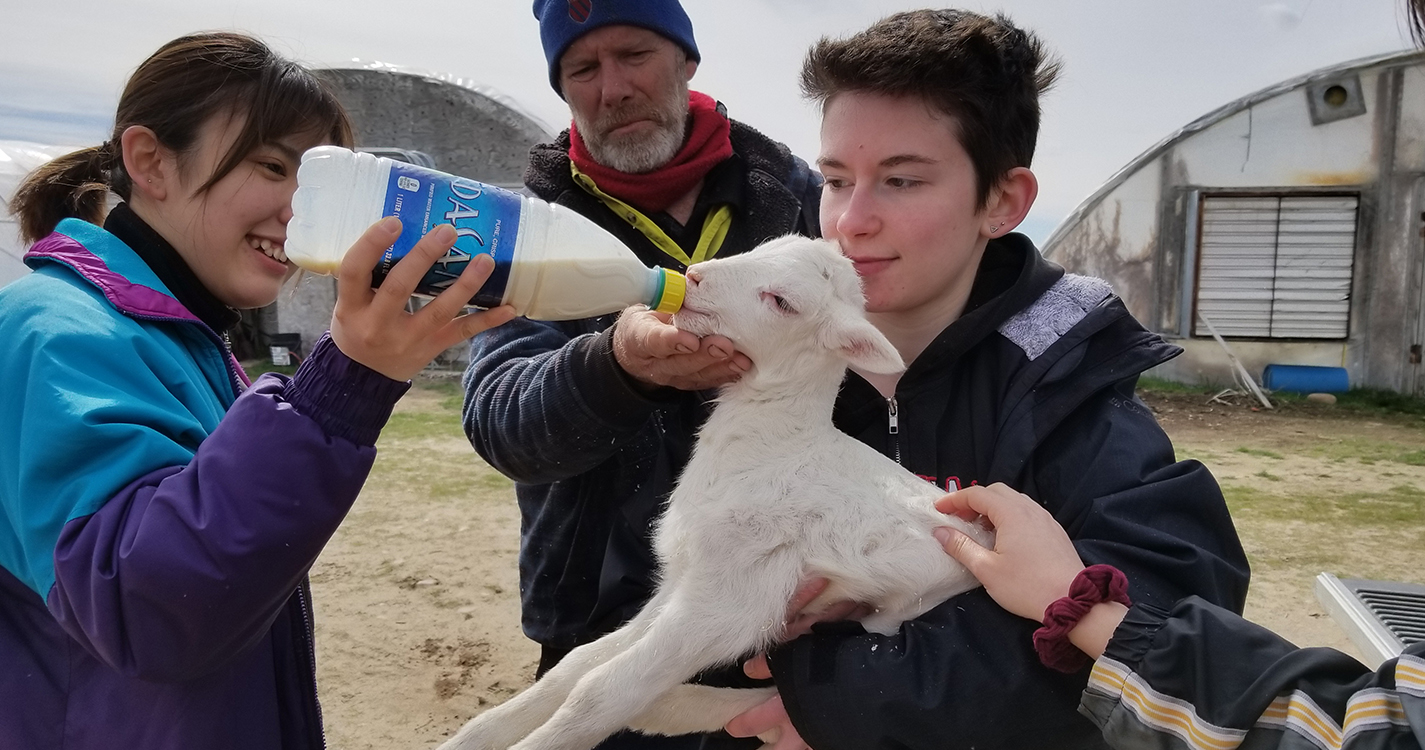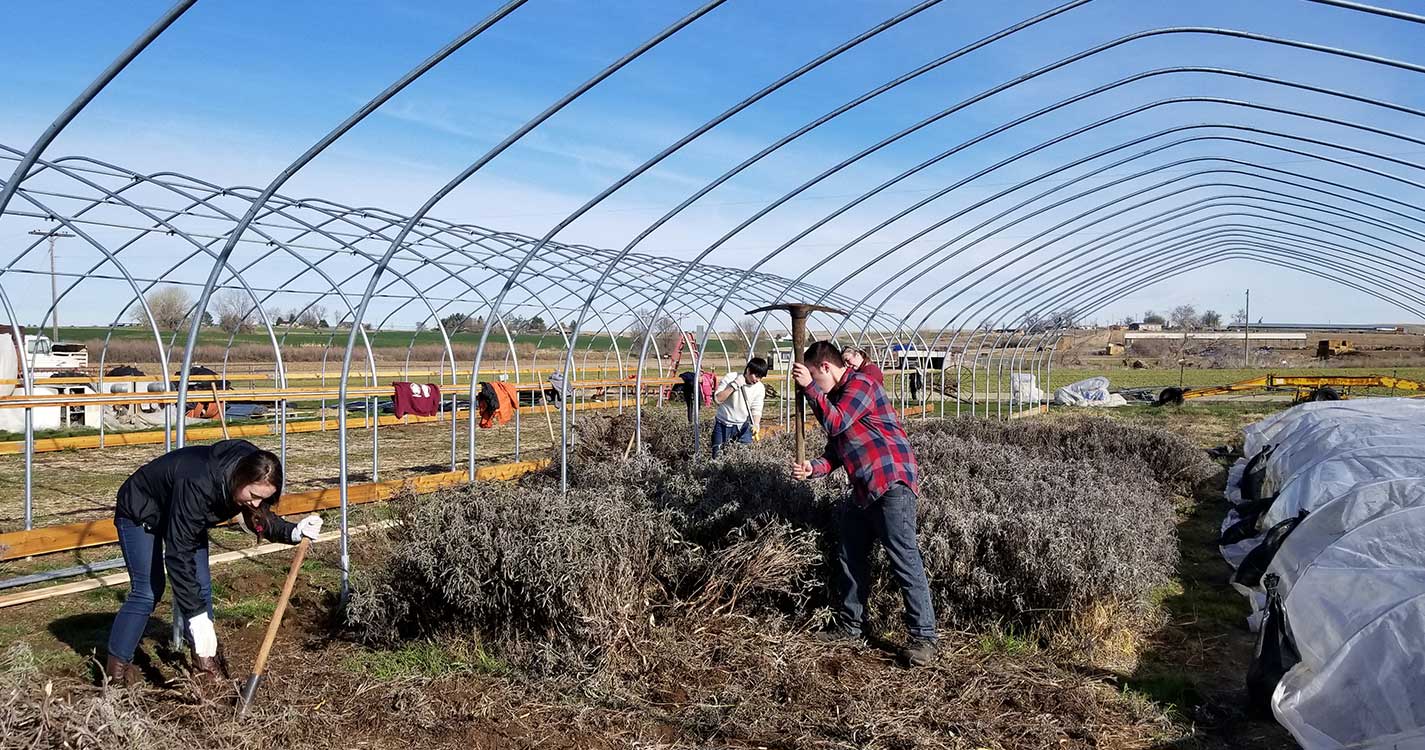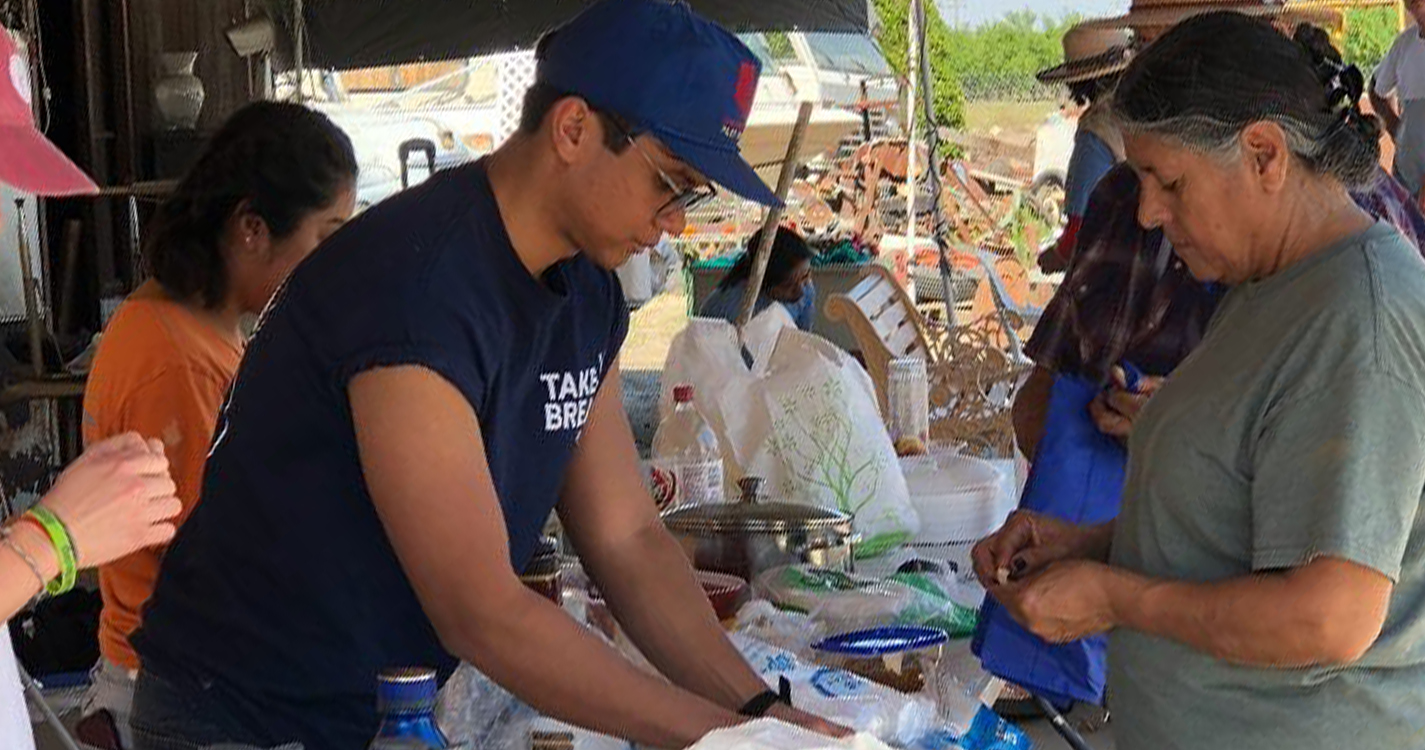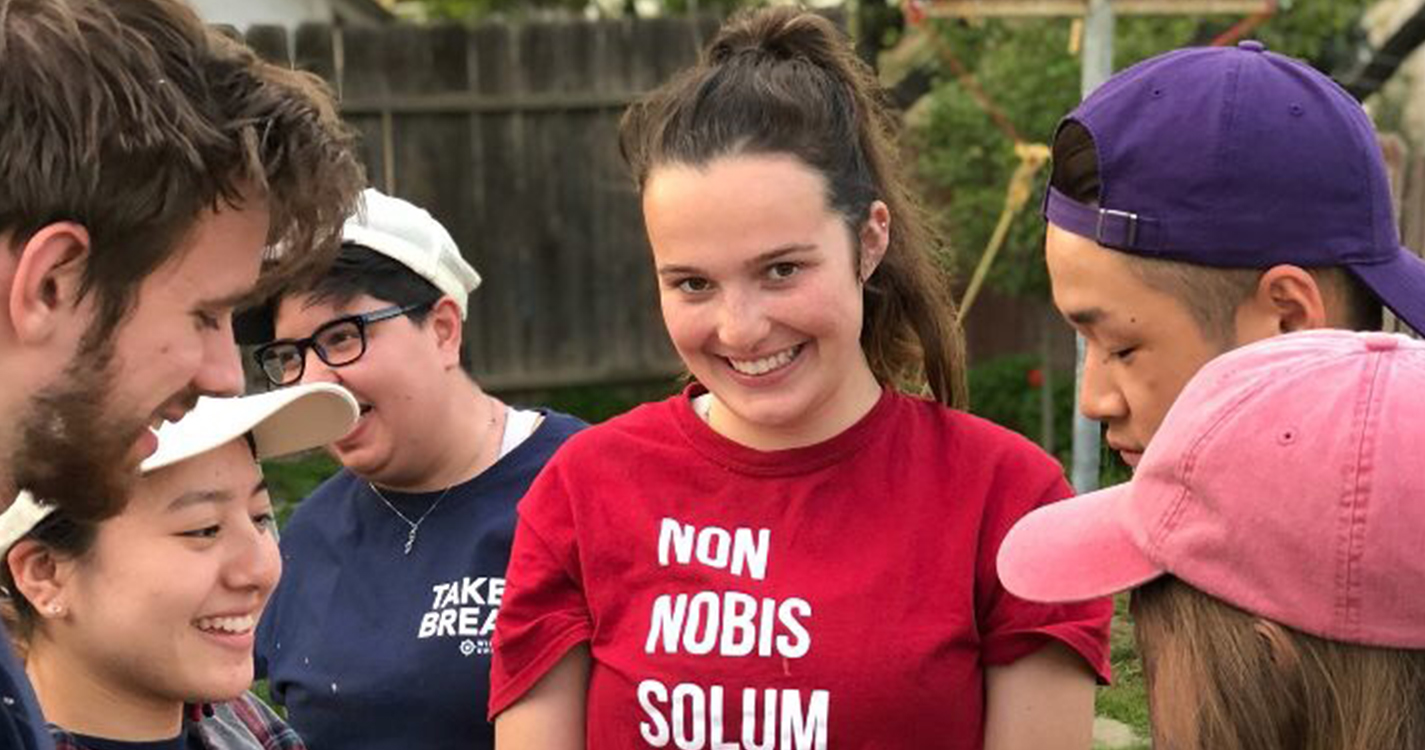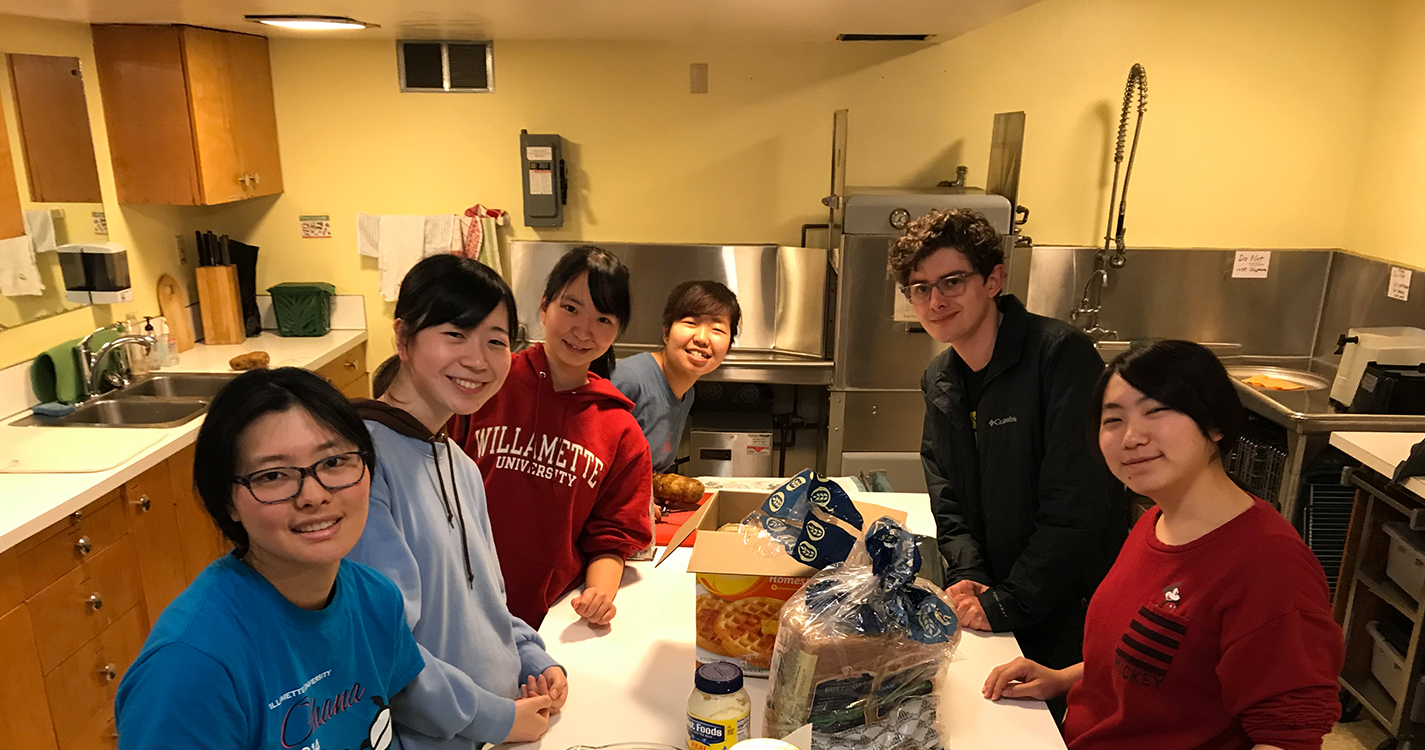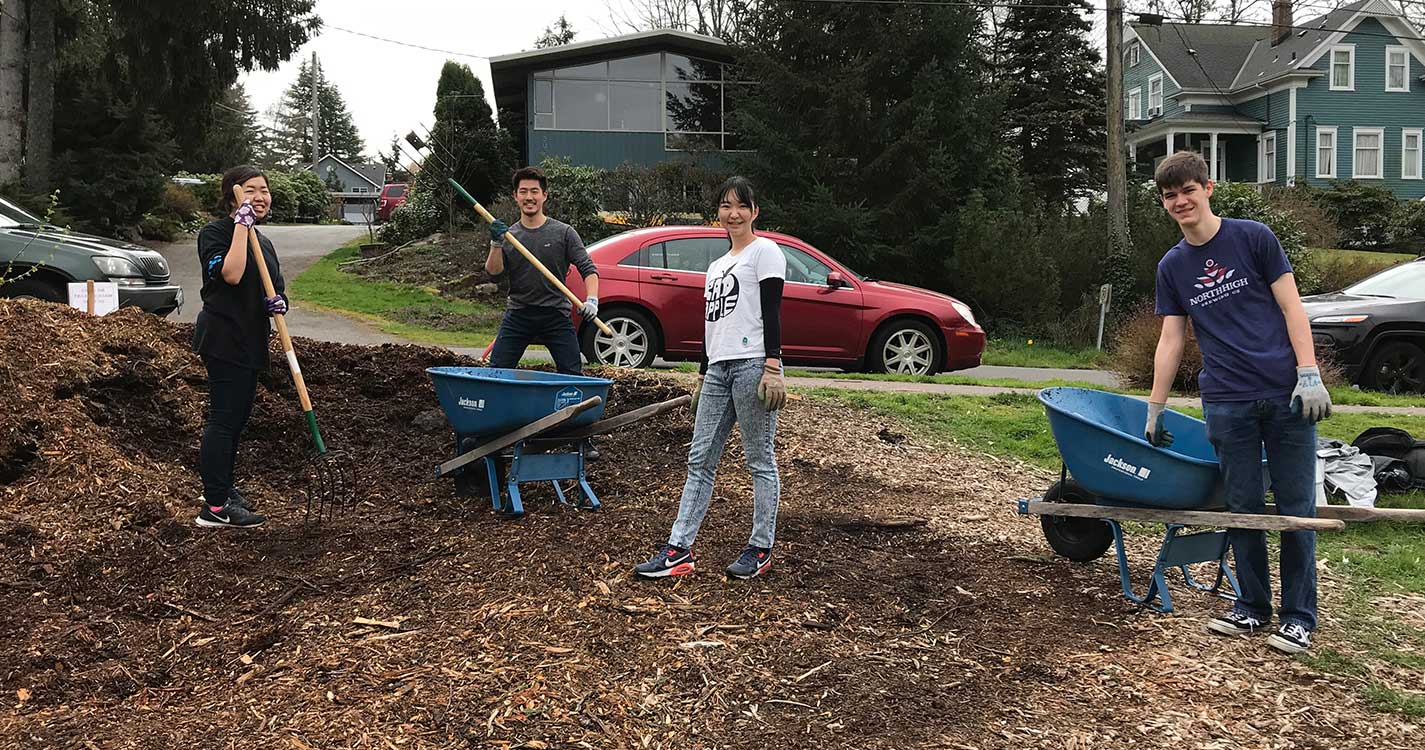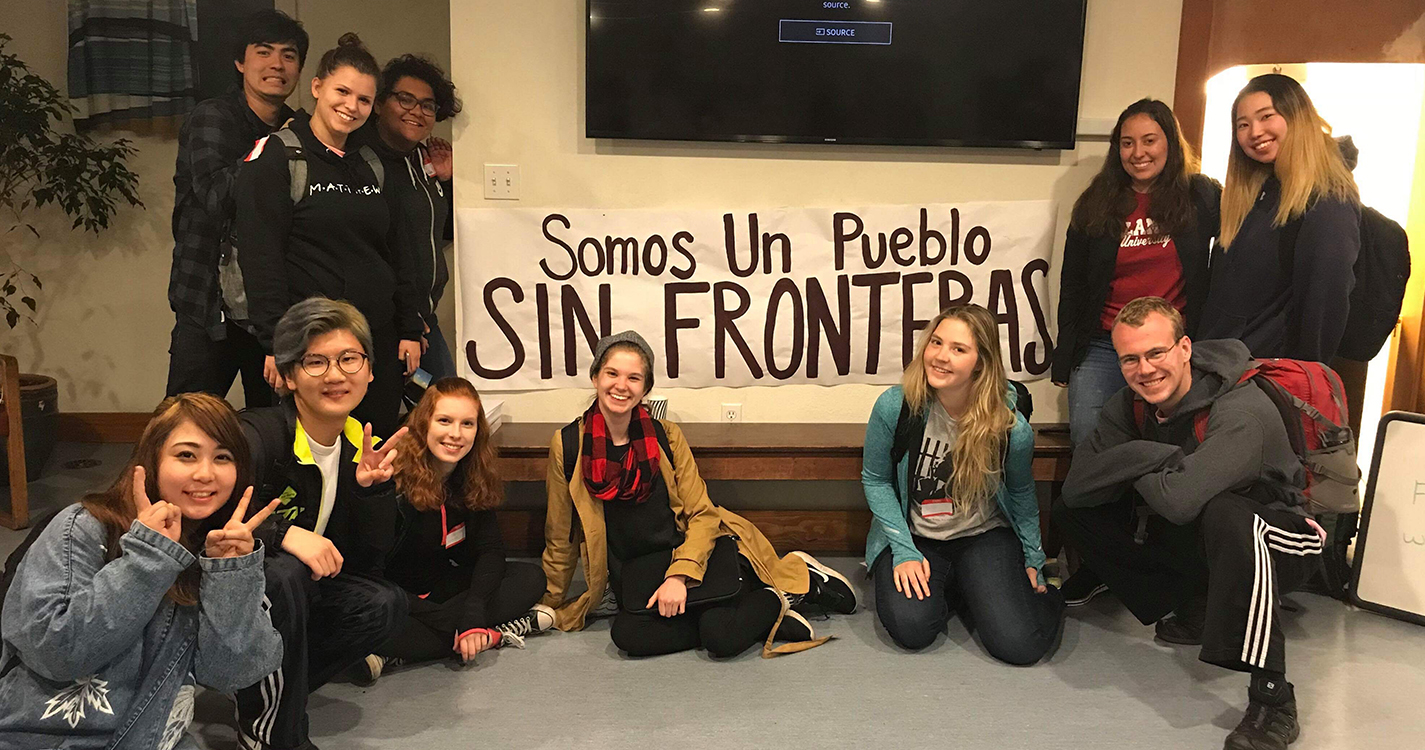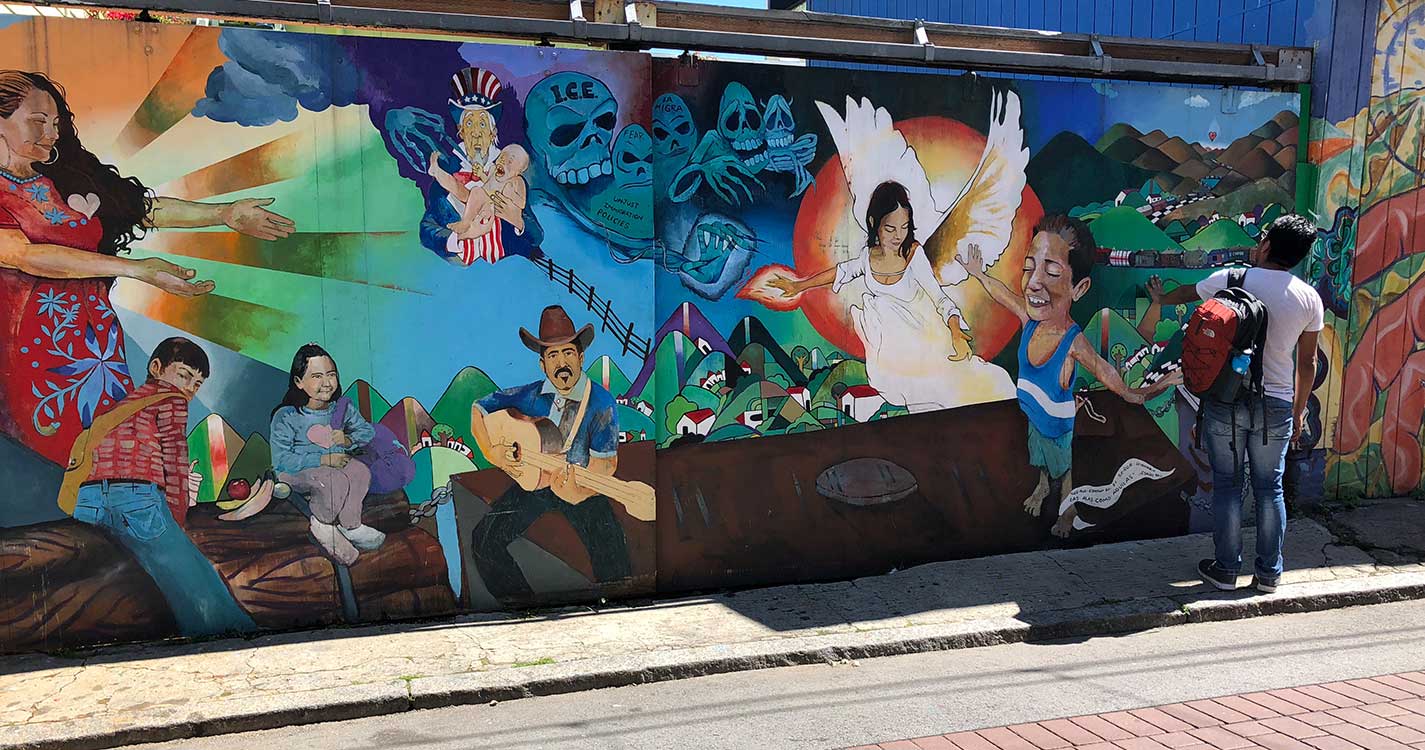Zachary Dyne ’19 recently traveled more than 400 miles and learned surprising facts about something he sees at home everyday: produce.
Dyne and 15 of his peers spent a week visiting various farms and food centers in Idaho through Take A Break, Willamette’s spring break alternative. Led and organized by students, trips follow a theme — topics this year included homelessness and environmental justice — and involve community service or experiential learning throughout the United States.
Dyne, who has participated in three trips, says TAB’s service learning teaches students more about a topic in a way that can’t be simulated in the classroom. His trip focused on food justice, a broad concept that encompasses providing fair wages for farm work and fair trade for produce, as well as making food affordable so it can be accessible to all.
Dyne’s group wanted to better understand the conditions under which food in the U.S. moves from the farm to the table. So he and a co-facilitator created a packed schedule that revolved around three phases of the food supply chain — production, distribution and consumption.
Students visited a Boise food bank and co-op, helped rebuild a greenhouse and met employees of a social enterprise that trains refugees for food service jobs. They toured the state capitol with an activist who is trying to halt proposed subdivisions from further consuming farmland — one result of Boise’s rapid population growth is that more land is being bought for housing.
Turning knowledge into action
Once the students returned to Salem, they were ready to put into practice the lessons they’d learned. Some wanted to lobby on behalf of the activist, while others who are members of Willamette’s food-related clubs wanted to become even more involved on- and off-campus.
First-time participant Karla Garcia ’21 felt the same way after her trip to Fresno, California, which focused on immigration, agriculture and migrant workers. Her group met with Centro Binacional para el Desarrollo Indìgena Oaxaqueño, which translates documents for indigenous communities from the Mexican state of Oaxaca.
Some Oaxaca farm workers migrate from Fresno to Woodburn, where Garcia was raised, in search of work. Garcia is a member of Willamette’s WU Causa, a club that advocates for immigrant rights, and now hopes the club can partner with the Fresno organization to help translate documents.
She also wants to get more involved with immigrant organizations.
“It’s easier said than done,” she says. “There’s a lot of fake activism that goes on — people claim they care about immigration, but when it comes to going out to canvass or attend WU Causa meetings, they don’t show up. So, I want to put an effort into volunteering and being vocal when there’s a problem.”
Her group painted homes at a campsite outside Fresno, visited a farm workers union and learned about an organization that offered legal, health and wellness services to immigrants. At one location, where students distributed clothes to immigrant families, Garcia was touched by families’ excited response.
Trip ends, but ready for the next one
While TAB trips can be fun and interesting, they also deepen students’ understanding of social problems.
Dyne found that even though organic produce often seems expensive, the price still doesn’t adequately cover the costs needed to sustain farms, pay farm workers or factor in the operating costs of grocery stores.
Dyne also learned something new about himself — his ability to lead. A previously shy student who struggled with public speaking, he decided to be a co-facilitator of this year’s trip after he became more interested in food-related issues. He finally felt ready to push beyond his comfort zone.
Garcia finished the trip recognizing the work that still needs to be done, such as providing communities from Oaxaca with more translators.
While her TAB experience confirmed her own knowledge of the needs of immigrants and migrant workers, it also made her more passionate about helping others and ready for the next trip. She says, “I will definitely do it again.”

